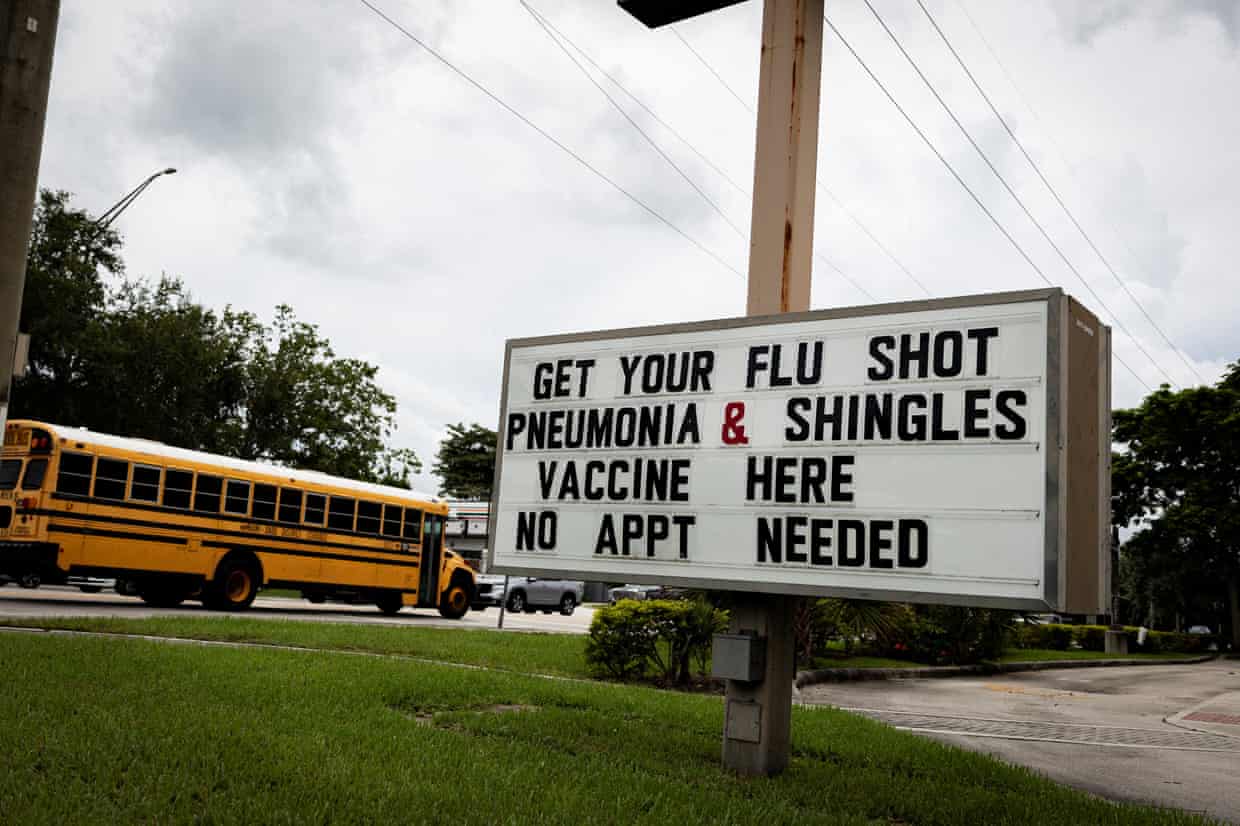Health
Florida to Drop School Vaccine Mandates, Allow Parental Choice

Florida’s plan to drop certain school vaccine mandates is set to take effect in approximately 90 days, according to the Florida Department of Health. The initiative, announced by state Surgeon General Dr. Joseph Ladapo, will initially apply to vaccines for chickenpox and a few other illnesses, unless lawmakers opt to expand it to cover additional diseases, such as polio and measles. This decision marks a significant departure from decades of established public health policy advocating for mandatory vaccinations to combat the spread of communicable diseases in schools.
The announcement follows a statement made by Ladapo, who declared that Florida would become the first state to make vaccinations voluntary, empowering families to decide whether to immunize their children. This shift is particularly notable given the overwhelming body of research indicating that vaccines are safe and effective, especially for protecting children from potentially serious illnesses.
According to the health department, the new rule will lift mandates for vaccines against hepatitis B, chickenpox, Hib influenza, and pneumococcal diseases, including meningitis. “The department initiated the rule change on September 3, 2025, and anticipates the rule change will not be effective for approximately 90 days,” the department noted in an email to the Associated Press. During this period, all other vaccine requirements mandated by Florida law, including those for measles, polio, diphtheria, pertussis, mumps, and tetanus, will remain intact unless modified through legislative action.
Florida lawmakers are not scheduled to reconvene until January 2026, although committee meetings will begin in October. During a recent appearance on CNN, Ladapo reiterated his stance on parental choice regarding childhood vaccines, stating, “If you want them, God bless, you can have as many as you want. And if you don’t want them, parents should have the ability and the power to decide what goes into their children’s bodies. It’s that simple.”
Ladapo’s comments have sparked considerable backlash, particularly after he compared vaccine mandates to “slavery” during a press conference with Florida’s Republican Governor Ron DeSantis. His remarks drew criticism from various quarters, including Democratic Florida State Representative Anna Eskamani, who described the move to end vaccine mandates as “reckless and dangerous.” Eskamani warned that such decisions could lead to declining immunization rates and increased outbreaks of preventable diseases, endangering children, seniors, and vulnerable populations in Florida.
In an even more alarming statement, John Moore, a professor of microbiology and immunology at Weill Cornell Medicine, suggested that the implications of this policy could be dire, stating, “Florida’s undertakers will now need to plan for the future by increasing their stocks of small coffins,” arguing that the decision would likely lead to higher rates of preventable diseases in schools.
Controversy surrounding Ladapo is not new. He previously faced scrutiny for allegedly altering data in a 2022 study conducted by the Florida Department of Health to exaggerate the risks of cardiac issues in young men associated with mRNA vaccines. The original study had indicated no significant risks, but Ladapo reportedly adjusted the language to suggest a high risk for men aged 18 to 39.
Health authorities have consistently criticized Ladapo’s stance on vaccines. In 2023, both the Centers for Disease Control and Prevention (CDC) and the Food and Drug Administration (FDA) condemned his views as harmful to public health, stating, “It is the job of public health officials around the country to protect the lives of the populations they serve, particularly the vulnerable.” The federal letter highlighted the dangers of fostering vaccine hesitancy, which undermines public health efforts.
Currently, Florida does allow for religious exemptions from vaccine requirements. Vaccination programs have been credited with saving over 154 million lives globally over the past half-century, according to the World Health Organization (WHO), with the majority of those saved being infants and children.
Health professionals in Florida, including Dr. Rana Alissa, chair of the Florida chapter of the American Academy of Pediatrics, have voiced significant concerns regarding the voluntary nature of vaccinations. They warn that this policy could jeopardize not only students but also school staff and the wider community.
The current public health landscape is alarming, as the United States is experiencing its highest number of measles cases in over three decades. More than 1,400 cases have been reported nationwide, with the majority concentrated in Texas, resulting in three fatalities. Additionally, outbreaks of whooping cough have led to the deaths of two infants in Louisiana and a five-year-old in Washington state since winter, with over 19,000 cases reported as of August 23, 2025, nearly 2,000 more than the same period last year, according to preliminary CDC data.
As Florida moves forward with this plan, the implications for public health and community safety remain a subject of intense debate among lawmakers, health experts, and the general public.
-

 Science2 weeks ago
Science2 weeks agoNostradamus’ 2026 Predictions: Star Death and Dark Events Loom
-

 Technology1 month ago
Technology1 month agoOpenAI to Implement Age Verification for ChatGPT by December 2025
-

 Technology6 months ago
Technology6 months agoDiscover the Top 10 Calorie Counting Apps of 2025
-

 Health4 months ago
Health4 months agoBella Hadid Shares Health Update After Treatment for Lyme Disease
-

 Health4 months ago
Health4 months agoAnalysts Project Stronger Growth for Apple’s iPhone 17 Lineup
-

 Health4 months ago
Health4 months agoErin Bates Shares Recovery Update Following Sepsis Complications
-

 Technology4 months ago
Technology4 months agoElectric Moto Influencer Surronster Arrested in Tijuana
-

 Technology5 months ago
Technology5 months agoDiscover How to Reverse Image Search Using ChatGPT Effortlessly
-

 Technology6 months ago
Technology6 months agoMeta Initiates $60B AI Data Center Expansion, Starting in Ohio
-

 Technology6 months ago
Technology6 months agoRecovering a Suspended TikTok Account: A Step-by-Step Guide
-

 Education4 months ago
Education4 months agoHarvard Secures Court Victory Over Federal Funding Cuts
-

 Technology2 months ago
Technology2 months agoDiscover 2025’s Top GPUs for Exceptional 4K Gaming Performance




















